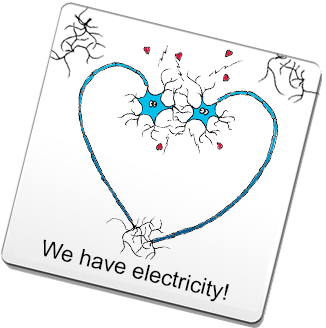
Popular topics

Big Dreams: Multidisciplinary Science — Not a Fairytale

Multidisciplinary science enables researchers to cross boundaries between disciplines and gain unique insights into their subject, as the researcher spends time working on a problem that intersects two fields, for example, combining neuroscience and psychology, or biochemistry and nanotechnology.
This nonconventional research approach has gained popularity in recent years, but there are challenges to multidisciplinary science. In this guest blog, Christine Lalonde, a Postdoctoral Fellow at Laurentian University, Canada, shares her experience of a multidisciplinary research career and her tips for others starting out in a multidisciplinary field.
Once upon a time, there was a 4-year-old girl who dreamed about going to space. She spent every day drawing pictures and reading books to prepare for a future as an astronaut. Not just any astronaut, an astro-detective. An astro-linguist. An astro-biologist, chemist, physicist, and physician. The little girl dreamed big. Her out-of-bounds goals kept her feeling a little out of place with her peers; never quite fitting anyone's expectations or molds.
Although she grew up, she still refused to conform to boundaries: why focus on one field of study?
I started my career path with a bachelor’s in business administration, and then received a bachelor’s of science in psychology, a master’s degree in biology, and a PhD in molecular science. My PhD research encompassed behavioral and molecular neuroscience that involved adaptation to prenatal exposures to radiation. Currently, my post-doctoral research projects involve two different laboratory sites, three different animal models, sub background radiation, neural development, gastro-intestinal symptoms from cancer treatment, addictions medicine, and the atomic bomb data. As the majority of everyone reading this is probably aware, the path was long and it was tedious, but I am ecstatic to be where I am and to be involved in a variety of projects.
Crossing disciplines is neither simple nor always enjoyable. Three important components to surviving and progressing in multidisciplinary work are as follows:
1. Audience Awareness
Whether it is a presentation, report, or journal article, in multidisciplinary science, you will need to consider who your primary audience is and frame your project from there. The literature you require to stay up-to-date doubles and the protocols, common laboratory practices, and nuances are different from field to field. Expectations vary, as does writing style and statistical preferences.
I am always open about these disciplinary differences to mentors and colleagues, who are often surprised by the differences and, without fail, are adamant their methods are better! So how do you comply with competing styles and wishes? Consider who you are currently creating a document, presentation, or dataset for and communicate with your mentors if there are conflicting interests.
Communication with your audience is an important aspect of peer-review and dissemination; however, scientific language in one field may be commonly used, but in another may be confusing. You might end up with a list of revisions and frustrating questions if you have not properly explained yourself. For journal articles, I ensure I reference key papers outlining common procedures for the reviewers and readers. In presentations, I include a number of appendix slides to prepare for people without a background in the field I am focusing on. Reach out to your supervisor, colleagues, or even the journal editors for guidance and clarification if you are unsure. By the end of my degree program, I became adept at approaching my advisors and outlining the reasons why one style, statistical analysis, or procedure was more appropriate for a particular situation — you have to become comfortable and assertive at being the cross-appointed expert.
2. Impostor Syndrome: Your Biggest Foe
I will not lie, my examiners questioned my right to be considered an expert in either field of science, and after my successful defense, the weight of impostor syndrome was heavy. The burden of understanding and recalling concepts from multiple science fields is challenging, but it is exciting and sets you apart from others. I truly believe that the ability to analyze and comprehend behavioral and genetic data enhances my understanding of functionality between the processes. Working through impostor syndrome and gaining confidence in your knowledge and value in the field will propel you forward — be proud of your work.
Throughout my studies, I have found myself having to contend with being “too much bio for a psychologist” and “too much psyc for a biologist.” I have heard supervisors state they do not consider me to be a part of their field, regardless of the fact that I was earning a degree in it. To be fair, none of these people spoke in a manner to purposefully exclude me, but it still felt isolating. I still do not always quite feel like I fit in with my peers, but the scientific world is changing in that respect. Do not hesitate to seek advice from your peers on your questions of self-validity and set aside time, weekly, that is dedicated to a mental break, family, or a hobby. What you are trying to accomplish is important, but so is your health.
3. Gaps and Overlaps
Researchers often call upon colleagues to combine the “big picture” and rely on each other to evaluate data appropriately. Multidisciplinary members have an advantage in this respect, in my opinion, and bridge the gap between fields. In order to do this, multidisciplinary researchers first need to bridge the gaps in their own knowledge.
Advice is often freely given, especially when sought, and I am not shy about asking for guidance. Particularly in my MSc and PhD programs, where I felt outside my element, I approached my professors early to alert them that I had little background coming into these advanced courses and would like to know where to begin my reading: what books should I utilize to catch up and what primary concepts were key to fundamental understanding. They were happy to help me fill in the missing material. Much of graduate school is spent outside of the classroom; so I also recommend seeking out your peers. I have, on multiple occasions, asked a lab-mate to summarize a concept for me. Supporting each other also solidifies friendships and mutual respect. And not to be overlooked, make time for the departmental seminars, free online webinars, and other training opportunities that cross your path; these have been invaluable to me catching up in multiple scientific fields.
In order to maintain some semblance of control and sanity over my knowledge acquisition, I categorized my reading among the different disciplines and swapped every other day, aiming to read one peer-reviewed article a day, as advised by a keynote speaker addressing junior scientists at a radiation conference. One article relevant to psychology and then one relevant to molecular biology the next day. Highlighting the overlap and gaps across the fields helps focus a clear strategy for your next manuscript. Compartmentalizing my work helped me organize my degrees and stay on-track.
I am still in the beginning of my academic career, but I have been offered multiple opportunities to collaborate on projects and give invited talks due to my multidisciplinary background. I enjoy stepping across the boundaries to work with either field to delineate their common goals and advocate for specific behavioral components, molecular assays, or analyses that should be included in their projects. Moving forward with the collaborative future and necessity to understand research in a flexible manner, multidisciplinary degree programs are becoming more common both at the undergraduate and graduate level. Students and principal investigators are able to drive projects towards more specialized subject areas, to be adaptable, and to move past traditional boundaries; all components that make the trainee arguably competitive and well-suited for an academic or industrial career path that is ever-changing and demanding.
I may never become an astronaut, or a linguist, or many of the things that I had hoped for as a child, but I am happy that I have chosen to stay true to my original goals — to combine multiple efforts in order to understand my world from a unique position.
Studying Neuroscience?
Bio-Rad has a range of products and resources to aid you in your research. From popular markers to mini-reviews, we are committed to supporting this vital area of research.
Learn More
You may also be interested in...

View more Careers or Guest Blog blogs















